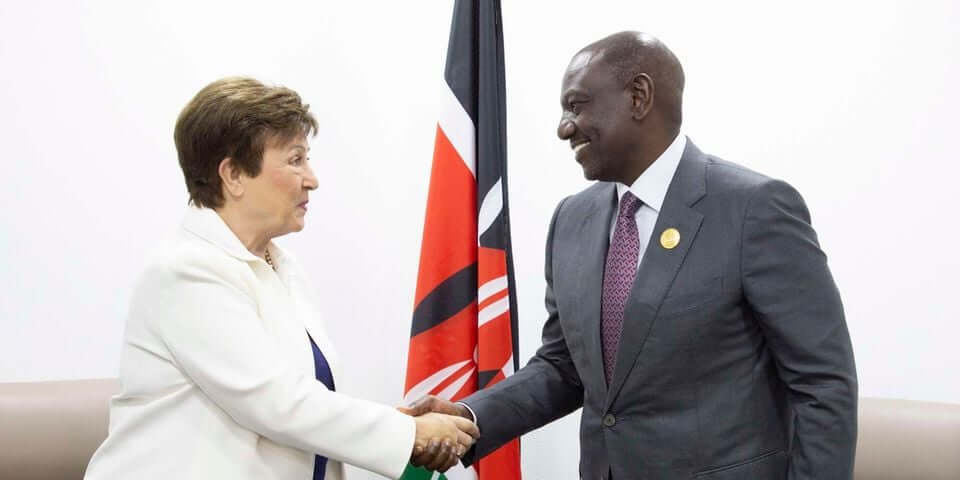IMF Approves Crucial $684.7 Million Loan to Kenya Amidst Fiscal Challenges

Francis Kyei, Senior Market Analyst,
- IMF disburses $684.7 million to Kenya, part of a larger $941 million package, to
support fiscal stability and impending Eurobond repayment. - Financial aid to ease liquidity challenges and bolster foreign-exchange reserves amid
rising external debt maturities and weakening currency
The International Monetary Fund (IMF) has approved a significant financial boost for Kenya, with an immediate disbursement of $684 million, as part of a larger $941 million lending package. This move is aimed at bolstering Kenya’s foreign-exchange reserves ahead of a $2 billion Eurobond maturity in June.
The disbursement, integral to an enhanced program established with the IMF last year, also includes an additional $60.2 million from the IMF’s Resilience and Sustainability Facility (RSF). The executive board’s approval on Wednesday brings the IMF’s total funding commitment to Kenya to over $4.4 billion under the Extended Fund Facility (EFF), Extended Credit Facility (ECF), and RSF arrangements.
“The EFF/ECF and RSF arrangements will support the authorities’ efforts to sustain macroeconomic stability,” while strengthening policy frameworks, and withstanding external shocks, says Ms. Antoinette Sayeh, Deputy Managing Director and Acting Chair of the IMF.
The funding is also intended to aid key reforms, including fiscal consolidation to mitigate debt vulnerabilities and a new debt anchor by 2029 for more inclusive and green growth.
Kenya faces acute liquidity challenges, with its foreign-exchange reserves strained by the legacy of the COVID-19 pandemic, frequent climate change-induced droughts, and a weakening shilling currency. The country’s external debt maturities in the 12-months through June are estimated at $3.5 billion, a substantial increase from $1.6 billion the prior year.
The IMF funds, along with expected contributions from the World Bank and regional banks like the African Export-Import Bank and Trade & Development Bank, are set to help Kenya meet its impending foreign debt obligations without depleting its hard currency reserves. Additionally, this financial assistance is expected to support the shilling, Africa’s second worst-performing currency last year after the naira.
The financial stance and balance of payments in Kenya have been adversely affected by high import costs for energy and food, compounded by a constrained foreign exchange capacity to cover these deficits. As of last week, Kenya’s foreign-exchange reserves stood at $6.8 billion, prompting the country to consider alternatives including debt swaps to strengthen its financial health.
Kenya’s receipt of the latest IMF financial support is the culmination of a preliminary agreement made with Kenyan authorities last year. The final disbursement figures have been slightly modified to account for changes in the value of the IMF’s Special Drawing Rights currency basket.
Disclaimer: This article has been prepared by GFX Brokers, an African investment firm with its registered office on the 2nd Floor, PWC Towers, Cantonments City, Accra Ghana. This article has been issued for information purposes only. GFX Brokers does not recommend or propose that any security referred to in this article is appropriate or suitable for your investment objectives or financial needs